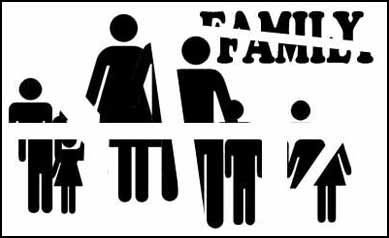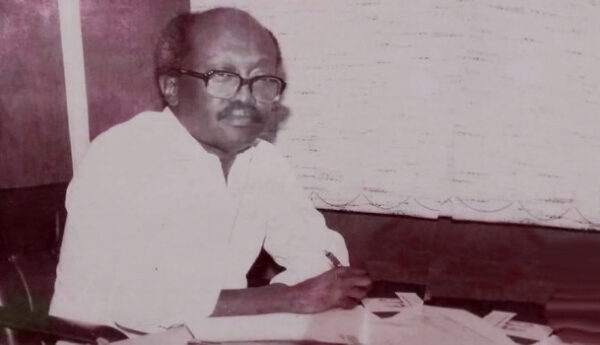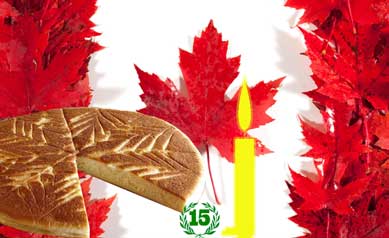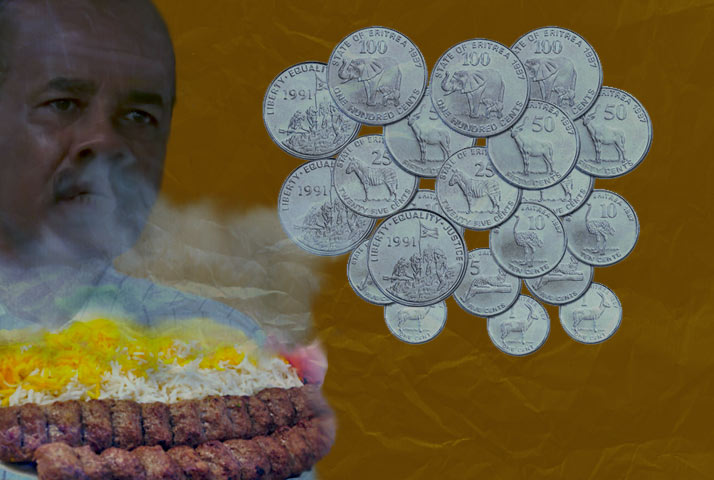Exile and Exodus from Eritrea

A Personal Testimony and Reflections on a Brutal National Service and Political Repression
The following is an annotated text of a speech made in a public seminar in Hanover, Germany, on June 5; organized by an Amnesty International working group on Eritrea and the roots of human exodus from the country. It is more a testimony based on an account of my own personal experiences and a reflection on and interpretation of the political crisis ailing the nation. The session was in the form of a semi-structured interview, followed by queries and comments from the audience. Presented here is an expanded reading of the main presentation.
How and when did you come to Germany?
I came to Germany in April 2011; and studied political science at the University of Osnabrueck, graduating in November last year.
Why did you decide to study in Germany?
I can say there were two main reasons behind my decision. The first is a technical one; that is a DAAD scholarship and permission to pursue graduate studies. I fortunately obtained a visa–ironically not the German entry visa but an exit visa from Eritrea — at this particular moment. It was nearly impossible–and still remains so–to get a leave permission, particular to any Western country, for whatever purpose for people in the service age (practically between 15 and 50 years). I received a DAAD (German Academic Exchange Programme) scholarship twice, the first chance being forfeited because I was unable to secure an exit visa to leave Eritrea legally.
After a year-long delay, I finally got the chance to leave Eritrea — an extremely rare chance still limited to employees of higher education colleges. The other reason that brought me to Germany for studies is rather a more fundamental and enduring one, that is academic interest. I have had an aspiration to study in Germany. I have a long-time impression that Germany–or famously “The Land of Ideas”– is the home of great philosophers and scientists of modern times: from G.W. Friedrich Hegel to Albert Einstein. In my field, I love political theory and philosophy. And some of the towering figures, or rather minds, in this areas — just to mention my most favorite philosophers Karl Marx and Friedrich Nietzsche — are the children of Germany. So the idea of studying in a land of such great minds that continue to influence the way we view the world, interpret politics and comprehend society today has been compelling and irresistible. Talking in the context of our theme, my story is nevertheless not representative. It just stands to speak for a very tiny fraction of youth allowed to leave Eritrea for educational purpose.
Where does your family live and do you have good contacts in Eritrea?
The story of my family could be eerily frightening to you all. It is a fragmented, dissolved and dispersed family not for social but solely adverse political conditions. The roots are still in Eritrea, and the rest dispersed around the world. Both my parents, a sister, and two brothers — who have been shackled in the so-called national service for years now — are still in Eritrea. My eldest sister lives in Kassala, eastern Sudan, as a refugee. She escaped from Eritrean after her husband, who presently lives in Qatar, deserted the army after years of service. The youngest family member is also in Sudan, dropping out of school and escaping Eritrea as young as 17 years, because he saw no future but only a military service. My younger sister, who is actually the subject of this evening, also lived for several years in Sudan before travelling the precarious journey across the desert to Libya and then the sea to Italy. Luckily she escaped death and now lives in Switzerland. This story is the story of every Eritrean family and, in fact, the story of my family is a better and less lamentable one. Most families experience extraordinary ordeals — losing their loved ones in the national service, the regime’s numerous prisons and regional wars,
or in the trafficking routes in the hands of callous human traffickers in eastern Sudan, the Sinai desert and Libya. Many don’t even know the whereabouts of their members who either disappear in the secret prisons or perish somewhere in the border-crossing or in the dangerous trek to the north, remaining unaccounted for and leaving their families in unrelenting pain.
Yes I do have contacts in Eritrea which are particularly limited to close family members. It is often difficult to communicate because, true to its nature of a closed kingdom, channels of communication (i.e., telephone and internet) are very limited. It is even difficult to communicate freely for fear of endangering those inside Eritrea. The government controls the telecommunication facilities and internet is heavily censored. But my contacts are mostly outside Eritrea not that I transformed my social life, but because the life of others like myself has changed forever. Ironically, most of the people of my generation are now outside Eritrea, living anywhere around the world from refugee camps in Eastern Sudan and Ethiopia to the Middle East, Western Europe, Canada, Australia, and the USA. Friends, colleagues and acquaintances from all walks of my life — from childhood to high school, college and after — are dispersed to different parts of the world; forsaking their loved home in search of freedom from the absolutism of Isaias Afworki ruling Eritrea since independence in 1991.
What leads them to migrate to Europe?
In his opening remark, Mr. Moderator stated that Eritrea is a leading source of refugees after – in no order — Afghanistan, Iraq, Syria and Somalia. In all four countries, violent strife and civil wars ragging for years or even decades have spilled millions out to Germany and Europe. Eritrea has not seen such internal violence since the end of the independence war. Yet, along with this conflict-ridden countries, it nonetheless is a leading source. In fact, given its small demography (about 6.64 million based on World Population Review estimates for 2014), it surpasses all four countries in terms of refugee per capita. It is not unusual that Eritreans constitute a great majority among those trafficked across the Sinai and Sahara deserts or shipped to Southern Europe, mainly to Italy and Malta. In a tragic incident off the Italian island of Lampedusa in October 2013, for example, over 300 of the 366 drowned victims from Africa and the Middle East were Eritreans. What is then the cause of the alarming exodus?
First is a forced, universal and an indefinite national service consuming the lives of all coming of age. And second is a brutally oppressive regime in war against its own subjects — the youth in particular — and its neighbors. Both these have turned life for the youth into a misery. Plainly and bluntly, they have no right to live in Eritrea. The only choice is to either languish in the national service with no future whatsoever or escape to freedom at any price including their own life. Everyone, including those who oblige to serve, are subjected to all kinds of abuses, arbitrary detention, and subhuman mistreatment in the hands of the army, the security and police. As Human Rights Watch reported in 2014 it is the “the indefinite military service, torture, arbitrary detention” compounded by “severe restrictions on freedoms of expression, association and religion” that provoke thousands to flee each month. Paradoxically, the regime stubbornly hinges on its destructive militarization policies; hypocritically blaming external powers for the outflow instead of addressing the root and legitimate causes of a worsening humanitarian crisis. Various sources indicate that, in cahoots with human traffickers and other criminal rings, the army and security brass including Isaias’s lieutenants and security operatives have themselves been long complicit in the exodus; benefit ting both politically by obviating potential domestic opposition that could stem from a disillusioned youth at home and financially by tapping on a multi-million dollar smuggling racket involving humans, arms and drugs. As a result, the regime continues to prevaricate and shun calls to address this festering issue.
The national service and the regime’s endless roundups have thus torn the social fabric apart. Unlike in other countries, the so-called national service entails an indefinite conscription and forced labor. Men are subjected to forced labor with little or no pay. Women, even though lesser in numbers, are in addition victims of sexual abuse by military commanders. Since mid-2012, due to Isaias’ mistrust of the regular army, even men in their 50s, 60, and 70s have been forcibly conscripted into a standing militia army. The national service beginning in 1994 has completely militarized society; subjecting it to everyday roundups, detentions and disappearances. All this, as Human Rights Watch reported in 2009, turned a “slender land” into a “giant prison,” with many political prisoners and other victims usually locked incommunicado in underground cells and shipment containers, much often in very inhospitable locations. I’m not trying to unfairly make a case for these refugees, but they are virtually fleeing for their life.
Amnesty International and other human rights organizations consistently claim the absence of freedoms of expression, assembly and worship are the main causes for the exodus. But such claim is in a way an understatement. It’s not an exaggeration when I say those young escapees flee so as to rescue their lives. Freedoms, economic opportunities or education — the main factors of migration from the south — are rather secondary causes when it comes to Eritrea.
Is it a must for you to serve in the military in Eritrea?
Yes it is; in fact it is the only way of life in Eritrea. You better not ask anyone from Eritrea whether they had been in the army or arbitrarily imprisoned. These are literally initiation rites everyone goes through. The right question should rather be like when and for how long one stayed in the army or the national service. The national service is ought to be an 18-month duty: a six-month military training and a subsequent 12-month service. I first went to Sawa — then a national military training center in western Eritrea close to Sudan and, since 2002, hosting 12 grade students — in May 1999, just five days after finishing high school and taking the university entrance examination. After approximately 5-month military training, we left the military center and were deployed in various agricultural activities in western Eritrea — just a prelude to the final, involuntary induction into the army. In one fateful day in late August or early September –after several weeks of hard labor and poor conditions — we’re gathered in big crowds of military units and government officials began calling names of successful students. To hear ones name was nothing less than a redemption in as much as it was a gloomy moment for the most who never heard again. The lucky few left the crowds to eventually join the University of Asmara (rendered defunct by Isaias’ decree since 2006) and the rest were immediately dispatched to their respective units in the army. Again my story is one of a tiny minority of students. It was a small university with little capacity; admitting not any more than 800 students every fall. Every year, the great majority were condemned to the army with no hopes of retaking the exam or resuming higher education in the future. But going to university wasn’t the end of the story with the abusive national service. Much more is to come and the indefinite national service is yet to start later after studies. A third and last phase of the 1998-2000 “border” war against Ethiopia broke out in May 2000, with the Ethiopian army occupying large swaths of western Eritrea.
Classes froze and we rejoined the army to serve in the battle zones for approximately three months. I finished my studies in July 2003; and I, like other graduates, was shackled in the service until I left Eritrea in March 2011; working as a college teacher with no freedom where to work, never to think of when to cease working.
Is there a resistance in Eritrea? If any, in what form?
Yes there is resistance; if there is oppression there is inevitably resistance. The only question is what kind of resistance is possible in an open prison-turned land? Until 2001, there were periodic internal uprisings and dissidence against the regime and demands for reform from different quarters. But thereafter — when Isaias jailed a reformist group of high-ranking government officials, party leaders and army commanders and crashed the first and last major movement for change — the regime has kept a tight lid on the political arena so much so that internal opposition has been rendered next to impossible. Literally speaking, there is no open domestic resistance in the form of street protests or popular uprisings. But I see a different form of resistance; resistance in an unconventional sense taking place in the form of a “mass exit.” The German-born American economist Albert Hirschman theorized that individuals respond to decline in firms or polities in three ways: “Exit,” “Voice,” or “Loyalty”. With the crisis of state legitimacy in Africa, citizens evade “predatory states” through complete disengagement –or exit –in the form of, for example, farmers switching to less taxed products like maize when governments seek to extract revenues from cash-crops like tobacco. Few others disengage through total exit or
emigration to other countries. In Eritrea, people have no right to voice their discontent nor a space to retreat to beyond government control. Thus the youth have to either be loyal and live in bondage or exit the country; risking their lives in a long perilous journey to Europe and elsewhere. That is the form of resistance I’m talking about; opposition to the regime or simple disengagement are nearly impossible, so rather show your disobedience by deserting it.
What is more, one could also think of other conventional, but non-peaceful, forms of resistance. The only available alternative for domestic opposition is thus violent action — military coup, armed rebellion, or violent popular protests. Yet the space for these modes of action is also nearly absent in Eritrea. Junior army officers demanding release of political prisoners and restoration of the 1997 constitution mutinied and/or mounted a coup d’état in January 21, 2013; but Isaias quashed the uprising and further tightened his grip. Popular protest resembling the Arab Spring uprisings is much difficult if not inconceivable. Not only does the regime maintain a tight grip on society but also the national service has regimented society; in effect atomizing it to shackled individuals with no room to associate, deliberate and act for their common good. The Arab uprisings are works of mostly educated, tech-savvy youth desperate for change, but have some public space to organize, oppose and resist. The reality is unfortunately quite different in
Eritrea. Most fled, while those inside the country are in the army. Unlike his former patron, Gaddafi of Libya, who kept a small but a very loyal elite army to obviate any challenge to his power, Isaias built a massive loyal army in order to shackle the youth in the excuse of national service. Thus Eritrea has been hemorrhaging its youth; particularly the educated, politically conscious section of society has been deliberately targeted, systematically subdued or exiled, or disinsentived to return from abroad. Without this social stratum, we cannot expect a popular uprising or any meaningful domestic opposition even in a relatively open regime.
How about the political opposition in exile?
Yes there is an enormous but highly fragmented, incoherent and weak opposition abroad. There are dozens of political and civil society groups including (a) armed opposition groups based in neighboring Ethiopia, (b) opposition political parties and organizations worldwide, and (c) civil society and human rights advocacy groups among the diaspora.
Yet the opposition lacks the necessary political and military clout. It is more an opposition to itself than to the regime in Asmara. It’s been rattled by deep-seated historical, regional, and personal rivalries. While most of these organizations purportedly seek a mere democratic change, many others — especially those representing minority ethnic groups like the Kunama and Afars — go further to demand self-determination for their homelands up to and including secession, and very few other marginal groups demand Sharia rule. Thus due to these ideological and programmatic differences, among others, the opposition keeps shooting at its own camp than aiming all its military and political efforts against the regime. It is fatally weakened by endless factionalism, power struggles, alliances and counter-alliances, and political frustration. It thus suffers from a lack of political and financial leverage to match the regime’s historically powerful organization and support among the diaspora. This trend has been changing only recently due to the latter’s outrage at Isaias’s callous and remorseless, sultanistic rule.
What is the condition of press and freedom of expression?
There is no private press nor rule of law to speak of the situation of press and freedoms of expression. The government maintains a monopoly on all sources of information since September 2001 when it shut down all private newspapers and jailed journalists. Independent media has been banned since then, leaving only a government controlled radio, television, and a multilingual newspaper. The BBC describes Eritrea as “the only country to have no privately owned media” in Africa; and indeed it is. Furthermore, the government often jams overseas transmissions, especially those directed by the opposition from abroad. For years, there have been neither foreign journalists nor correspondents inside Eritrea. The government expelled the last accredited foreign correspondent in 2008. It is one of the world’s most closed regimes.
Reporters Without Borders, for instance, continuously ranked Eritrea last (180th in 2014) in its World Press Freedom Index for five consecutive years; ironically after totalitarian North Korea.Thus, so to speak, freedom of expression is completely absent.
What do you wish for your country?
Well don’t take me for a patriot, but this is a hardworking, stoical and persevering nation, undeservedly subjected to repression and humiliation by an excessively stubborn, egotistical, and a psychopathic despot. Since we’ve here a German audience, making some comparisons with Germany makes a good sense. During the post-war period (that is after 1945), Germany had seen momentous historical episodes marked by both setbacks and progress — from division and allied occupation after the war; to independence, industrialization and prosperity in West Germany; and to unification or the “wiedervereinigung” under a democratic government in 1990 at the conclusion of the Cold War. During this entire period, Eritrea had seen just war, displacement, famine, and lately a brutally abusive, tyrannical regime. As Mrs. Clara Braungart explained earlier, over a half century of war, famine and devastation, including the depredations of a violent revolution for three decades, was followed by more than two decades of political oppression, social dislocation and economic malaise. It went to war with all its neighbors except Sudan with which relations have been cordial since 2006, but had long been cold and at times anything short of war. In short, this is a nation betrayed of its dreams of freedom and peace for which it paid dearly for decades — dreams soon crushed after independence.
It makes sense to argue that present Eritrea is akin to the former DDR (East Germany) minus the Berlin wall and the communist ideology; even though it has its own walls and a destructive ideology. In fact, the DDR boasted a constitution and periodic elections, however superficial these exercises were. Eritrea is likewise a single-party state ruled by a neo-patrimonial regime, but (unlike most other post-colonial African regimes during the Cold War) without any pretense of democracy or democratic institutions. Ironically, it is the only post-colonial African country without even a nominal constitution, national elections, or a parliament rubber-stamping executive decrees. It is rather a closed personalist regime with dreadful overtones of right-wing totalitarianism. Like the swift transition in East Germany in 1989, I want to see a peaceful end to this dark episode; the “Die Wende” or a U-turn taking Eritrea to a path of democracy and prosperity. Such hopes might be heady, but change is inevitable and I do wish Eritrea will have its 1989 sooner than later.




Awate Forum